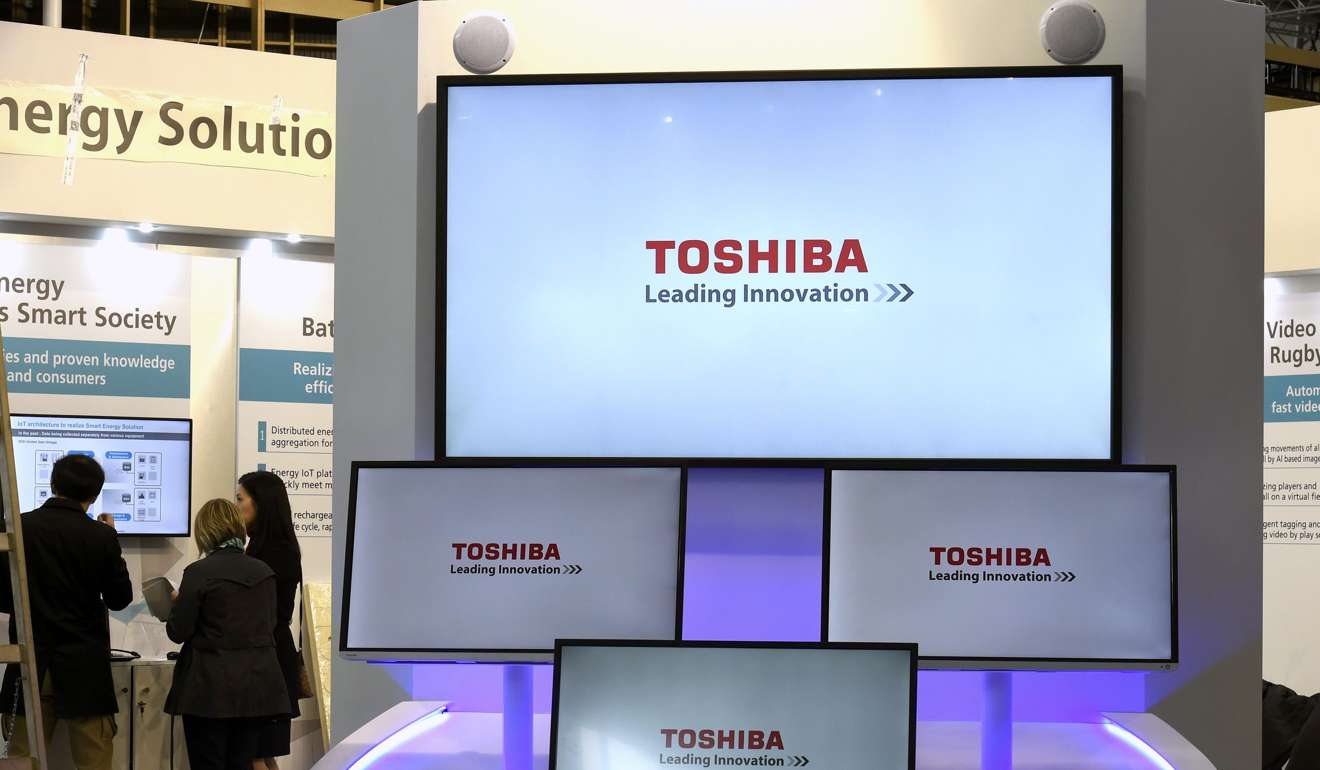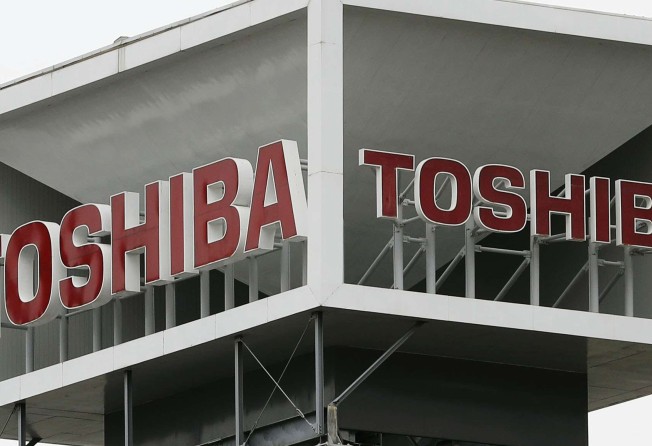
Possibility of Toshiba sell-off to Chinese firms sparks national security fears in Japan

Japanese electronics giant Toshiba is coming under increasing pressure not to approve the sale of its semiconductor business to a Chinese company, with the government concerned any such deal could compromise Japan’s national security.
Toshiba is struggling both domestically and abroad since a number of well-publicised problems have hit home. The company is still reeling after being outed in 2015 for overstating its operating profits to the tune of 152 billion yen (US$1.38 billion) over a number of years, while the firm confirmed in February that it expects a loss of 712.5 billion yen in its US nuclear business as a result of delays in projects that have led to huge cost overruns.
In an effort to balance its books, Toshiba wants to sell off some of its most assets, with the semiconductor division one of the first on the block.
That has triggered alarm in the Japanese government, however, because Toshiba components are used in such a wide range of computers and other IT equipment.
Of particular concern are the company’s NAND-type flash memory chips, which are widely used in data centres operated by private Japanese companies as well as ministries and other government organisations.
“The government has real national security concerns over any such deal and is reluctant to give Toshiba a free hand to sell off this part of its operations,” said Jun Okumura, a visiting scholar at the Meiji Institute for Global Affairs.

“I don’t think this is a case of the government attempting to protect a family heirloom or being motivated by an industrial policy; this is the government bringing pressure to bear out of concern for the security implications.”
Ten companies have so far indicated an interest in taking over Toshiba’s semiconductor business, including Tsinghua Unigroup of China and Taiwan-based Hon Hai Precision Industry and Taiwan Semiconductor Manufacturing. Other bidders include SK Hynix of South Korea and Western Digital of the US.
“I think it is very unlikely that the Japanese government would be supportive of Toshiba selling to a Taiwanese company,” said Okumura. “Especially Hon Hai, whose CEO is very pro-Chinese.”
An added concern is that the company that does eventually purchase the unit may subsequently sell it on, potentially to a Chinese firm.
The Japanese government is considering applying the Foreign Exchange and Foreign Trade Control Law to issue a “recommendation” on who Toshiba sells the division to.
If the company chooses to ignore that advice – perhaps at the behest of shareholders looking to get the optimum returns on their investment – then the Japanese government has the power to order the sale to be halted.
One possible solution being considered is for the Japanese government to have a number of its own organisations purchase shares in a new company that is split off from Toshiba.
That would effectively mean that taxpayers’ money is funnelled through the Development Bank of Japan and other similar organisations to support the company.